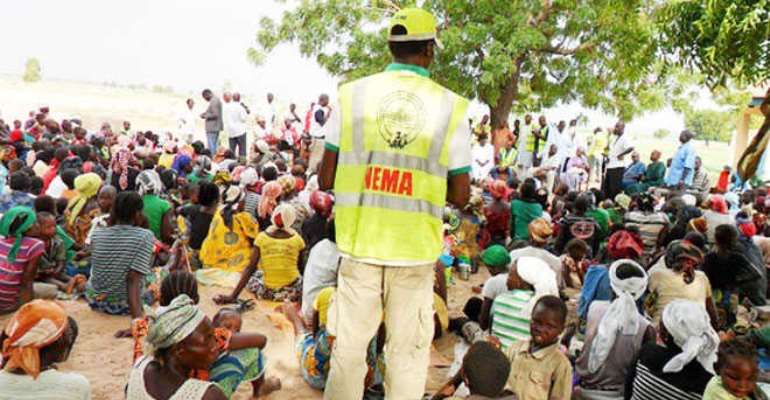Nigeria signs MoU with UNHCR, Cameroon on return of refugees

The Federal Government of Nigeria has signed a tripartite agreement with the United Nations High Commissioner for Refuge (UNHCR) and the Republic of Cameroon for the voluntary return of Nigerian refugees who had fled for safety and are currently taking refuge in Cameroon.
The Director General of the National Emergency Management Agency (NEMA), Muhammad Sani Sidi disclosed this when the African Union Humanitarian Mission led by its Commissioner for Political Affairs, Dr. Aisha Laraba Abdullahi visited the Headquarters of the Agency at the weekend.
He said there were some 80,000 displaced Nigerians currently taking refuge in Cameroon and that the federal government has been making efforts to cater for all their basic needs.
Sani Sidi said the Federal Government and governments of states affected by the insurgency, United Nations Organisations, International Non-Governmental Organisations and the private sector had done a lot in the past four years to manage large numbers of internally displaced persons in the North East, adding that 'we have moved from the emergency response stage to recovery and resettlement of the IDPs.'
He urged the visiting Commissioner to use her good office as Commissioner Political Affairs of the African Union to seek more assistance and support for the affected persons and the states.
Earlier, the Commissioner said they were in Nigeria to assess the situation of IDPs and to discuss areas of possible support.
She added that displaced Nigerians were of concern to the African Union, as records available to AU indicate that there were about 13 million displaced persons and 3 million refugees on the continent.
Abdullahi commended the efforts of the Nigerian government and the military in degrading and minimizing the activities of the insurgents in the northeast.
She said with the large number of displaced persons living in the camps, the AU will continue to give more attention to the issues of displacement through interaction and focus on addressing the root causes of conflict in Africa.
